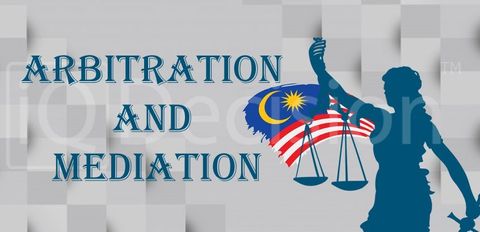Arbitration
Legislation governing arbitration in Malaysia is quiet archaic, which is why the country's government has recently taken steps to make it more compliant with UNCITRAL. Prior to that the main piece of legislation governing pre-trial resolution of commercial disputes in the state of Malaysia was the 1952 Arbitration Act (hereinafter referred to as the AA).
Please note that the AA itself does not define the term “arbitration”. However, Malaysian courts have generally recognized the validity of arbitration agreements when they are not ambiguous.
If the arbitration agreement stipulates that the dispute between the parties should be referred to arbitration, and one of the parties files a lawsuit, then the other party may petition the court to suspend the proceedings prior to the commencement of arbitral proceedings. These actions must be completed before any other measures are taken during the trial.
Need help with resolving bankruptcy cases in the state of Malaysia? Looking to conclude an arbitration agreement in Malaysia? IQ Decision can help you handle that and more.
Arbitration Law Reform
Reform of arbitration law in Malaysia, which is based on the New Zealand model, is already underway. The question the Malaysian legislators are now facing is whether they should combine the provisions of domestic and international arbitration into one legislative act, or divide it into two separate laws.
The New Zealand model is attractive because it gives greater autonomy to the parties and provides them with an opportunity to choose their actions. There is a general consensus that UNCITRAL should be used for issues of international arbitration, including the pre-trial settlement of commercial disputes in Malaysia.
However, the question of which specific provisions should be applicable to domestic arbitration remains open. As stated earlier, the Malaysian legislators are leaning more toward the New Zealand model which has at its core promotion of international coherence of arbitration regimes based on UNCITRAL and promotion of coherence between international and domestic arbitration regimes.
It is precisely for this reason that it so attractive to the Malaysian legislators and will most likely be used as a basis for all subsequent reforms.
KLRCA
Being an International arbitration institution, KLRCA has its own internal rules regarding arbitration. Its rules provide for the settlement of disputes in accordance with arbitration regulations developed by the UN Commission on International Trade Law & amended by KLRCA. This, in turn, provides greater flexibility in terms of conducting arbitral proceedings in Malaysia, as well as wide discretionary powers for the parties regarding the choice of arbitrators, the place of arbitration and the applicability of the procedural rules.
The functions of the KLRCA include the imposition of administrative fees, consultation of the parties on applicable rules, appointment of arbitrators in Malaysia, and establishment of the amount of arbitrator fees and collection of deposits. The Center also provides a venue for arbitration, technical facilities and other necessary assistance.
Mediation
1999 saw the establishment of the Center for Mediation of Malaysia (or the CMM). Back then, the country only had twenty seven mediators who had undergone a 3-day training on mediation methods.
The CMM’s role was to facilitate mediation of alternative means of dispute resolution in Malaysia, as well as provide appropriate opportunities for the successful resolution of disputes between the parties.
The CMM offers the following services:
- mediation;
- legal advice on how to convince the other party to agree to the mediation process;
- mediation training for those interested in qualifying as mediators.
All CMM mediators must be practicing members of the MBA for at least 7 years. They are also required to take a 40-hour training course conducted and organized by the CMM, and pass a practical exam upon its completion.
Arbitration Agreement
Concluding an arbitration agreement requires the parties agree to appoint an appropriate mediator. If they fail to reach an agreement between themselves, a mediator suitable for resolving this dispute is appointed by the CMM. The agreement also provides that mediation will be conducted in accordance with the CMM rules.
There is also a requirement for confidentiality of information related to the mediation procedure in Malaysia, as this is one of the most important principles of mediation.
Mediation Procedure
Mediation procedure provides for initiating mediation, appointment of mediators, dischargement of mediators, representation, powers of a mediator, a settlement agreement, confidentiality, termination of intermediaries and interpretation of rules and regulations.
IQ Decision UK lawyers closely monitors the latest developments in international and domestic laws. Our company provide you with legal advice on resolving commercial disputes through arbitration or mediation worldwide.














